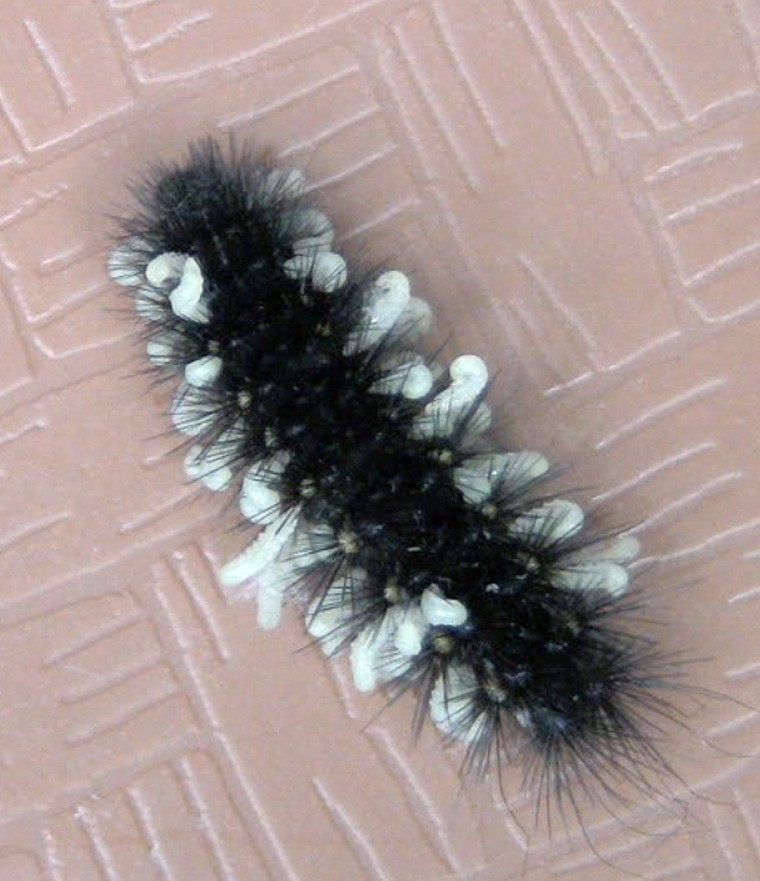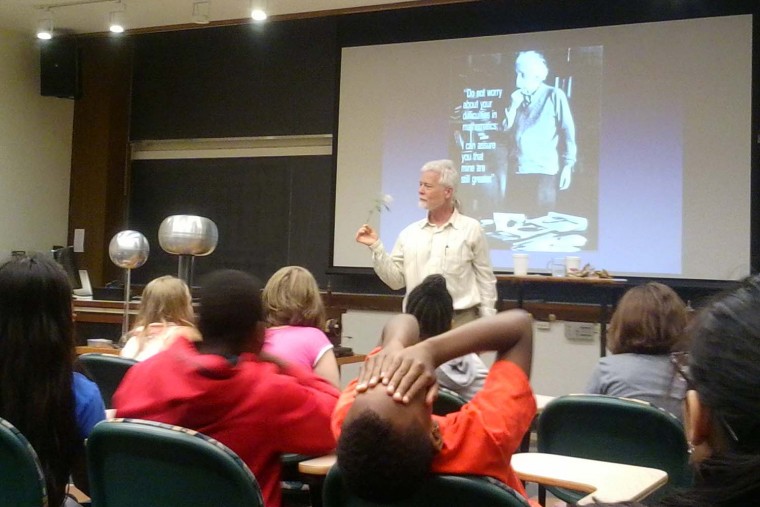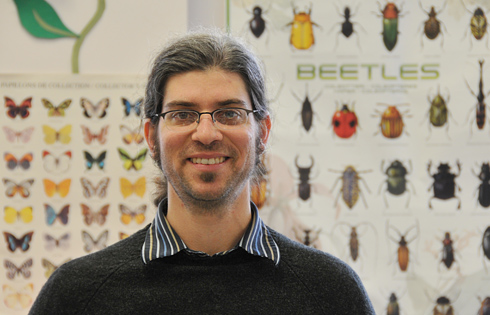Mike Singer, professor of biology, professor of environmental studies, received a three-year grant from the National Science Foundation this month to support a study on habitat fragmentation. Fragmentation occurs when contiguous habitats become separated into smaller, isolated areas often caused by human activities (new roads, housing developments) or natural processes (flooding, drought). Singer and his colleagues will study the effect of anthropogenic forest fragmentation on the food web of plants, herbivores, and carnivores (tri-trophic interactions) in Connecticut. The project will focus on relationships among deer, trees, caterpillars, and songbirds. The grant, which will be awarded over three years, is shared with…
"As far as relationships go, parasitism may seem particularly selfish: one partner benefits at the expense of another. Many parasites even alter the behavior of their hosts to get what they need. Parasitoids are similar, but they usually spend a significant portion of their lives living inside or on their hosts' bodies and controlling them from the inside-out, before ultimately killing and often consuming them." So begins an article in Science Daily featuring research by Melissa Bernardo, a PhD student in biology working with Michael Singer, associate professor of biology, associate professor of environmental studies. Bernardo has been studying how parasites and…
Fifth graders from Snow Elementary School in Middletown toured Wesleyan’s astronomy, biology, chemistry, and physics departments on June 8. (more…)
Mike Singer, associate professor of biology, associate professor of environmental studies, is the co-author of several recently-published papers. They include: “Thee struggle for safety: effectiveness of caterpillar defenses against bird predation,” is in press and will appear in the April 2015 issue of Oikos. This article shows how the camouflaged or bold appearance of a caterpillar can protect it from predatory birds in Connecticut forests. Former BA/MA student, Isaac Lichter-Marck '11, '12, is the first author of this article. “Defensive mixology: Combining acquired chemicals toward defense,” is published in Functional Ecology, 2015. This article proposes a conceptual framework to study the use of natural drug cocktails by animals…
Grandmothers used to warn youngsters against being “a jack of all trades, and a master of none,” and with good reason, at least in the animal kingdom, according to research by Mike Singer, associate professor of biology, associate professor of environmental studies. Singer’s decade of research in the ecosystems of Connecticut forests reveals that caterpillars with finicky feeding habits avoid predation from birds, whereas those that feed generally on many plants become meals for baby birds. The “specialist” bugs are much better at survival. Singer and five collaborators published these findings in the prestigious Proceedings of the National Academy of…
Mike Singer, associate professor of biology; Tim Farkas ’08, MA ’10 and Christian Skorik ’09, MA ’10 are the authors of "Tritrophic Interactions at a Community Level: Effects of Host Plant Species Quality on Bird Predation of Caterpillars," published in the March issue of The American Naturalist. Researchers at the University of California at Irvine also contributed to the report. Researchers report that a tree is not a tree is not a tree when it comes to birds foraging for tree-feeding caterpillars. With help from a small army of students, the scientists ran a field experiment in Connecticut forests over two…
A word of caution to the caterpillar munching on that delicious, nutritious black cherry tree: watch out for hungry birds. Michael Singer, associate professor of biology, is the lead author of a new study published in The American Naturalist on the effect of a caterpillar’s choice of feeding spot on its chances of becoming bird food. The article found that on balance, nutritious trees, like black cherry, can increase by 90 percent a caterpillar’s risk of being taken by foraging birds. According to the article, this effect is seen because the most nutritious tree species harbor the greatest number of…
Michael Singer, associate professor of biology, associate professor of environmental studies, received a $10,000 Doctoral Dissertation Improvement Grant from the National Science Foundation for “The Role of Toxin Complementation in Herbivore Defense.” The award will support graduate student Peri Mason's doctoral dissertation.
Wesleyan has announced the following promotions of faculty, effective July 1, 2010: Promotion with Tenure During the academic year, the Wesleyan Board of Trustees maintains an ongoing process of tenure case consideration. During its most recent review, the Board awarded tenure to one faculty member effective July 1, 2010. Michael Singer, associate professor of biology, was appointed assistant professor at Wesleyan in 2004. Previously he was postdoctoral fellow at the University of Arizona’s Center for Insect Science, in Tucson. Singer’s research examines the evolutionary ecology of tri-trophic interactions between plants, herbivores and carnivores. In considering (more…)
Michael Singer, associate professor of biology, associate professor of environmental studies, is the co-author of “Triptrophic effects of host plants on an herbivore-pathogen interaction,” published in the Annals of the Entomological Society of America, 2010.





